In the News | Older
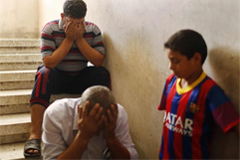 |
In the NewsJanuary 14, 2009Grieving over GazaAnat BiletzkiThe NationSome of us, as Israelis, are grieving over what we have become. Blaming the other side with a roster of rehearsed clichés cannot mitigate the grief. |
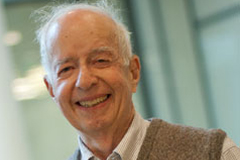 |
In the NewsDecember 20, 2008Eugene Skolnikoff: the pioneer of science diplomacybridgesEugene B. Skolnikoff is one of the pioneers who recognized the value of S&T in foreign relations. One of the founding fathers of "Science Diplomacy," he has been working on science in foreign policy for almost 50 years. He served on the science advisory staff under Presidents Eisenhower, Kennedy, and Carter, and has had a distinguished academic career at MIT, where he is now professor emeritus of political science. He kindly agreed to speak with about his decades-long experience in the field of science and public policy, how the Soviets opened the opportunity for him to join the White House, and why he thinks that global warming is not the most pressing foreign policy issue for science diplomacy. |
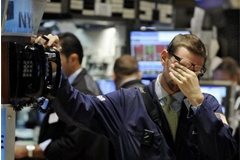 |
In the NewsDecember 5, 2008A 'Once-in-a-Century' Financial Crisis-Mortgaging the Future: How We Got in This Mess & Why It Could Happen AgainRobert MadsenEconomy, Culture & History Japan SPOTLIGHT Bimonthly (November/December 2008): Pages 30-33Overcoming the present financial crisis—which Alan Greenspan recently described as "a once-in-a-century" disaster—and shoring up the foundations of the world economy will doubtless require several years. In the meantime, the recriminations have already begun. Most of the criticism justifiably centers on the United States, whose poorly regulated real estate and mortgage markets precipitated the trouble and whose investment banks, hedge funds, and other institutions almost instantaneously transformed it into a worldwide phenomenon. It would be a mistake, however, to limit the scope of the inevitable scrutiny to just the United States or even the global financial system, for many other institutions also played significant roles in these tragic events. |
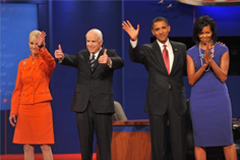 |
In the NewsDecember 1, 2008The future of the American frontierJohn TirmanThe American ScholarCan one of our most enduring national myths, much in evidence in the recent presidential campaign, be reinvented yet again? |
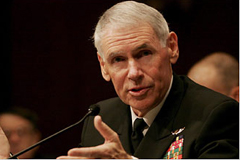 |
In the NewsNovember 25, 2008Fallon: US needs strategy on ChinaBryan BenderBoston GlobeFormer top commander says Pentagon officials insisted he prepare for war with China. |
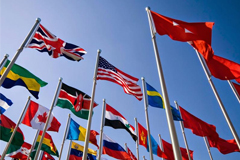 |
In the NewsSeptember 18, 2008Foreign policy and the next US administrationMIT scholars Barry Posen, Taylor Fravel, and Carol Saivetz participated in a roundtable discussion on foreign policy and the next U.S. administration. This discussion was the first in a series of forward-thinking talks on pressing global issues in which MIT experts offer advice to the next U.S. president. |
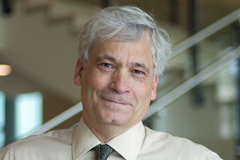 |
In the NewsSeptember 15, 2008Q&A with Roger PetersenRoger Petersen, an associate professor of political science at MIT and a member of CIS, studies comparative politics with a special focus on conflict and violence. He has written two books: Resistance and Rebellion: Lessons from Eastern Europe and Understanding Ethnic Violence: Fear, Hatred, Resentment in Twentieth Century Eastern Europe. He also has an interest in comparative methods and has co-edited, with John Bowen, Critical Comparisons in Politics and Culture. In spring 2008, Petersen went on sabbatical to the Balkans for six months. Upon his return, he sat down with CIS to discuss his recent studies. |
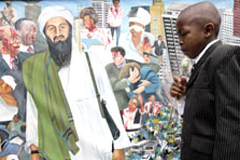 |
In the NewsSeptember 11, 2008Who's winning the War on Terror?WBUR: On PointWBUR's On Point with Stephen Van Evera. |
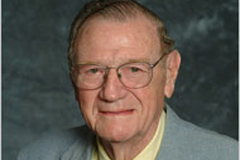 |
In the NewsSeptember 11, 2008Lucian W. Pye, bold thinker on Asia, is dead at 86Douglas MartinNew York TimesLucian W. Pye, an influential political scientist who marshaled a piercing intellect, psychoanalytic insights and plain intuition to take startling new perspectives on area studies, particularly concerning China and other Asian nations, died on Sept. 5 in Boston. He was 86. |
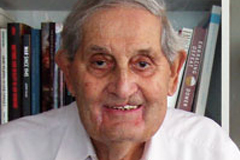 |
In the NewsSeptember 1, 2008Q&A with Carl KaysenCarl Kaysen joined the MIT faculty in 1976 and currently co-chairs the American Academy of Arts and Sciences Study Committee on International Security Studies. Among his many posts during his distinctive career was deputy special assistant for national security affairs to President Kennedy. Kaysen sat down with CIS in late July to discuss his current work, his advice to the next administration, and his proudest moments. |
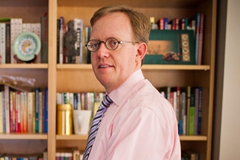 |
In the NewsAugust 10, 2008Q&A with M. Taylor FravelSamuel P. JacobsBoston GlobeIn his new book, M. Taylor Fravel offers an intriguing argument about the relationship between instability within China and stability in the rest of the world. |
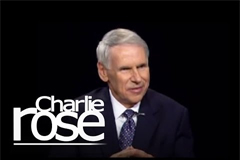 |
In the NewsJuly 30, 2008A conversation with Admiral FallonCharlie RoseA conversation with Admiral William J. Fallon, Former U.S. Centcom Commander. |
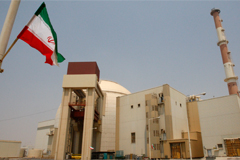 |
In the NewsJune 10, 2008Interest grows for international Iran atom plantFarah StockmanBoston GlobePresidential candidates John McCain, the presumptive GOP nominee, and Barack Obama, the presumptive Democratic nominee, have both endorsed using international consortiums to produce nuclear fuel as a way to take production out of the hands of unpredictable states, but neither has said he would consider placing such a facility inside Iran. |
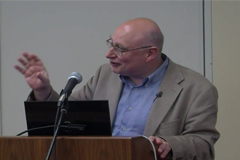 |
In the NewsApril 9, 2008Leaderless Jihad: radicalization in the westMarc Sageman, an expert on al Qaeda and related terrorist organizations, discusses how people end up on the path to political violence in a post-9/11 world. His talk builds upon his best-selling book, "Understanding Terror Networks" and is based upon his recent publication, "Leaderless Jihad." Sageman is an independent researcher on terrorism and the founder of Sageman Consulting, LLC. He holds various academic positions at the George Washington University, the University of Maryland and national think tanks, like the Foreign Policy Research Institute, the Center for Strategic and International Studies, and the Homeland Security Policy Institute. |
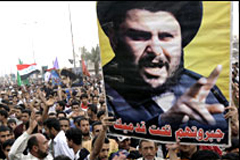 |
In the NewsApril 1, 2008What happened in Basra?Barry Posen, director of the Center's Security Studies Program, Juan Cole, a CIS research affiliate, and other scholars, were featured on WBUR's "On Point." The scholars discussed with host Tom Ashbrook the recent rise of Moktada al-Sadr and his militia in the southern oil port of Basra. Listen to Basra: Defining Moment? Related, is a recent CIS Audit on Iraq by Juan Cole. Stephen Van Evera, associate director of CIS, was featured on Minnesota Public Radio on the topic "Calm returns to Iraq?" |
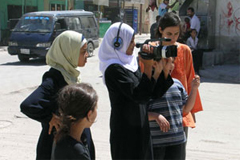 |
In the NewsMarch 21, 2008Just Jerusalem competition winnersMIT’s Jerusalem 2050 Program, a joint initiative sponsored by the Department of Urban Studies and Planning and the Center for International Studies, announced today the winners of its global Just Jerusalem competition. The open contest sought proposals that addressed different aspects of urban life in a futurist Jerusalem. Participants were asked to look beyond the current nation-state conflict and, instead, focus on ‘just’ the city as a place where, by mid-century, its citizenries co-exist in peace. |
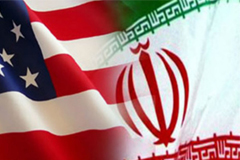 |
In the NewsMarch 20, 2008A solution for the US-Iran nuclear standoffThomas R. Pickering, William Luers, and Jim WalshNew York Review of BooksThe recent National Intelligence Estimate's conclusion that Tehran stopped its efforts to develop nuclear weapons in 2003, together with the significant drop in Iranian activity in Iraq, has created favorable conditions for the US to hold direct talks with Iran on its nuclear program. The Bush administration should act on this opportunity, if for no other reason than that its current position is growing weaker, and without such an initiative, Iran will continue its efforts to produce nuclear fuel that might, in the future, be used to build nuclear weapons. |
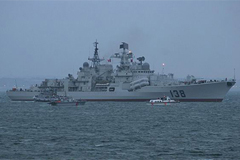 |
In the NewsMarch 1, 2008US-Japan relations and a changing AsiaThe Center organized a two-day retreat entitled "US-Japan Relations and a Changing Asia." The event was held on Feb. 29 and March 1, 2008, at the Endicott House at MIT. Moderating the discussions was, Ford International Professor of Political Science and director of CIS. Llewelyn Hughes, a doctoral candidate in the Department of Political Science and an affiliate of the Security Studies Program, served as rapporteur. |
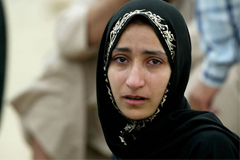 |
In the NewsJanuary 15, 2008Iraq: the human costConventional wisdom in American politics focuses only on American costs in the war in Iraq: the casualties to U.S. soldiers, the financial costs, and sometimes the strategic costs. But the human cost to the Iraqis themselves are nearly ignored in political discourse, the news media, and intellectual circles. This site is a corrective to those oversights. We present empirical reports, studies, and other accounts that convey and assess the consequences of war for the people of Iraq. |
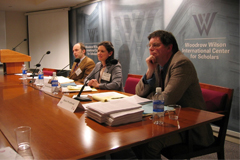 |
In the NewsJanuary 10, 2008The liberal foreign policy tradition: pluses, problems, and prospectsThe MIT Center for International Studies, in cooperation with the History and Democracy Project and the U.S. Section of the Woodrow Wilson International Center for Scholars, convened a one-day meeting on January 10, 2008, at the Wilson Center to explore the liberal tradition in U.S. foreign policy. Seven scholars and three interlocutors, and an invited audience of forty, provided insights on Woodrow Wilson, Franklin D. Roosevelt, John F. Kennedy and others, and how they informed and shaped this tradition with respect to democratization and rights, global economic equity, war and peace, and other topics. This exceptionally rich conversation is captured on this video (best viewed in Internet Explorer). Click here to see the agenda. |


